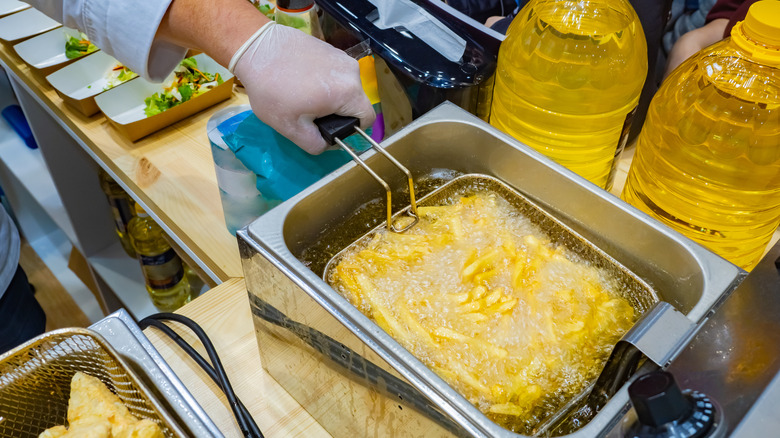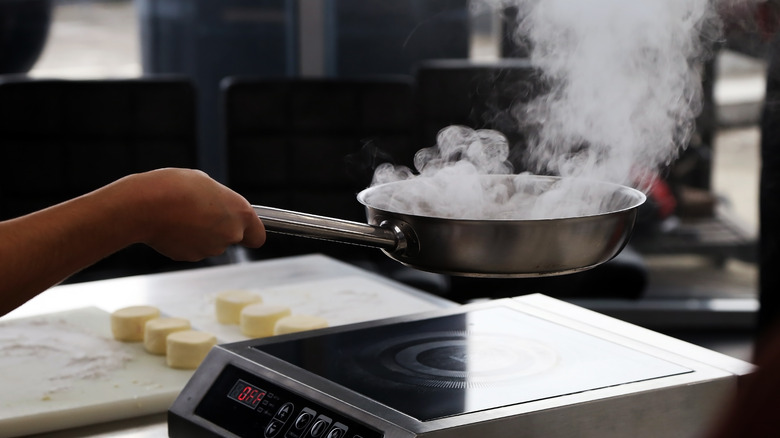Does The Smoke Point Of Oil Change When You Reuse It?
Not all cooking oils are created equally. In fact, even though most folks reach for their vegetable or olive oils most of the time in the kitchen, cooking fats have a ton of nuance to them. Not knowing enough about them can lead to a smoke-filled kitchen and a ruined dinner.
Besides flavor profiles, probably the most important quality of a cooking oil to be aware of is the smoking point. The smoking point is the temperature at which each type of oil will start to produce smoke (via Livestrong). Those temperatures range from 510 degrees Fahrenheit for the durable safflower oil to 325 degrees Fahrenheit for the dainty extra virgin olive oil (via Serious Eats). In addition to setting off your smoke alarm, going past the smoking point will also produce dangerous free radicals and compounds called acrolein that will leave you with rotten tasting food and an acrid smelling kitchen. It's also dangerous to cook past the smoking point, because that brings your oil closer to igniting.
According to Livestrong, the usual temperature for deep frying foods is around 375 degrees Fahrenheit. That means that if you're planning to make a batch of fried chicken, you'll need to get an oil that can handle that heat. What's more, if you're planning to reuse that oil, you'll need to get one that can take even more.
Oil's smoking point lowers with each use
Disposing of cooking oil can be tricky, and throwing out a vat of the stuff that was used for deep frying a turkey that one time just feels wasteful. Luckily, cooking oil is usually good for more than one go as long as it's stored correctly (via Green Citizen). Another thing to keep in mind is that the smoking point will lower with each successive use.
According to Verywell Fit, every time that a cooking oil is heated, the oil starts to break down. Through oxidation, it produces free fatty acids and free radicals that lead to rancidity and lower the smoking point. Because that oil is breaking down every time it's reheated, the smoking point will get lower each time. So, yes, go ahead and hold onto your cooking oil for the next time you want to make a batch of French fries at home, but know that it won't be able to stand the heat quite as well as before.
Livestrong also notes that it's important to store your oil properly. If it's not filtered before storage, then bacteria can feed on the remaining food particles and even develop into botulism. Filter oil through a fine mesh sieve to get any leftover food out, and keep it in an airtight, refrigerated container until it's next needed.

